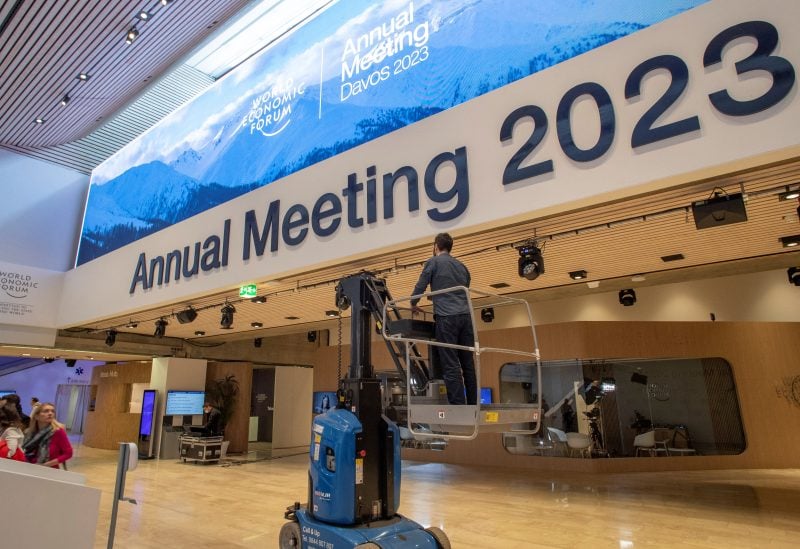
A worker stands on a mobile lift in a hall at Davos Congress Centre, the venue of the World Economic Forum (WEF) 2023, in the Alpine resort of Davos, Switzerland, January 15, 2023. REUTERS
On Monday, as attendees gathered for the opening of the World Economic Forum’s annual meeting, the possibility of an impending global recession threw a long shadow over Davos as they calculated the possible costs for their economies and businesses.
Two-thirds of senior economists from the commercial and public sectors polled by the WEF anticipate a worldwide recession this year, with 18% of them describing it as “very likely” — more than twice as many as in the last survey, which was conducted in September 2022.
“The current high inflation, low growth, high debt and high fragmentation environment reduces incentives for the investments needed to get back to growth and raise living standards for the world’s most vulnerable,” WEF Managing Director Saadia Zahidi said in a statement accompanying the survey results.
The WEF’s survey was based on 22 responses from a group of senior economists drawn from international agencies including the International Monetary Fund, investment banks, multinationals and reinsurance groups.
Meanwhile, a survey of CEO attitudes by PwC released in Davos on Monday was the gloomiest since the “Big Four” auditor launched the poll a decade ago, marking a significant shift from optimistic outlooks in 2021 and 2022.
The World Bank last week slashed its 2023 growth forecasts to levels close to recession for many countries as the impact of central bank rate hikes intensifies, Russia’s war in Ukraine continues, and the world’s major economic engines sputter.
Definitions of what constitutes recession differ around the world but generally include the prospect of shrinking economies, possibly with high inflation in a “stagflation” scenario.
On inflation, the WEF survey saw large regional variations: the proportion expecting high inflation in 2023 ranged from just 5% for China to 57% for Europe, where the impact of last year’s rise in energy prices has spread to the wider economy.
A majority of the economists see further monetary policy tightening in Europe and the United States (59% and 55%, respectively), with policy-makers caught between the risks of tightening too much or too little.
“It is clear that there is a massive drop in demand, inventories are not clearing up, the orders are not coming through,” Yuvraj Narayan, deputy chief executive and chief financial officer of Dubai-based global logistics company DP World told Reuters.
“There are far too many constraints imposed. It is no longer a free-flowing global economy and unless they find the right solutions it will only get worse,” he said, adding the group expects freight rates to drop by between 15% and 20% in 2023.